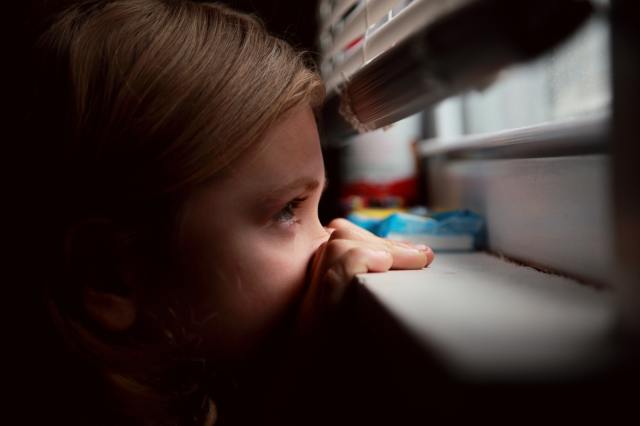
Being cooped up at home is difficult for children and stressful for the parents. Although the idea is to slow the spread of the virus, there is another aspect of the crisis that one cannot ignore or escape—the impact of the lockdown on your family’s mental health, particularly children.
The virus has disrupted lives globally. The death toll and how rapidly the virus is spreading paints a grim picture of what is happening in the world. And these are some of the main reasons your children may feel scared, anxious, or sad. It is a natural reaction as the whole idea of not shaking hands, hugging, seeing their friends at school, and playing at the park, has burst the safe bubble they were living in. They may have tons of questions regarding the virus and disturbed by such sharp changes in their routine.
It is important how you choose to react and handle your child’s anxiety and stress. Here is how you can help keep your children calm and cope with the anxiety linked to coronavirus:
1. Address and Acknowledge Your Child’s Concerns. Parents are a child’s haven and safety net. They know that if they are suffering emotionally or physically, they can run to their parents for shelter. These are troubling times and certainly not something they or you have ever witnessed before. So, answer their questions regarding the pandemic with reassurance. Be honest with them and talk to them if they hear any distressing news. Let them know people are getting sick, but washing hands frequently and staying at home will keep them safe. They are likely to follow the rules when they understand the reasoning behind it.
2. Keep in touch with Friends and Family. You need to change your perspective of social distancing. Think of it as physical distancing. But keep in touch with your loved ones. Maintaining positive social relationships during these trying times is necessary for our well-being. Tell your children that although they cannot be with them physically, they can do video calls, phone calls, connect through social media, and even write emails. They might be worried about their grandparents who are living alone or are at risk of getting infected. Video chats could bring the anxiety down considerably. As for friends, you can set virtual playdates and set up calls if you have young children who are missing their friends. Having said that, take care of your needs as well. You need to connect with others too. Stay in touch with friends who support you and encourage you. Want to take care of your child’s needs? First, you need to take care of your own.
3. Establish Rules for Limited Screen-time. Parents are still getting used to having kids at home 24/7. With schools closed, children’s screen time has jumped considerably. Parents, apart from their work-from-home responsibilities and home chores, now have to homeschool their children too. To catch a break, they often let their kids use their phones and tablets more than the assigned time. Establish rules regarding media and screen use. Avoiding the constant stream of pandemic news can lessen stress and anxiety levels and set times to check the news and then turn it off.
See that your child does the same. Whether you have a tween, teen, or younger child, their screen usage may have increased a great deal during the lockdown. Set limits on digital time and rather spend time doing productive activities with each other. Apart from virtual learning, see limits on their social media and internet use, in general.
Excessive electronic usage leads to anxiety. If your child is addicted to screens or showing signs of addiction, you can set limits on their screen use via websites like Xnspy and remotely monitor their digital activities and browser history. Apart from getting hooked to news constantly, with too much time available on their hands, they can get lured into inappropriate activities that make it inevitable for parents to keep an eye on their child’s digital use.
4. Creating a Routine. Children look towards their adults for reassurance and support when there are changes in their surroundings. Children flourish in predictable routines. As families all over the world are settling into new normal with new schedules and habits, you should too. Talk to your children, assure them that this is the way things are going be for a while. This way, it becomes easier for the child to accept the new routines.
Here are some tips to help you create a routine, so it reduces your child’s stress:
- Stick To Proper Sleeping Schedule. Maintaining a regular bedtime routine for your children and yourself is essential. See that you keep your kid’s bedtime the same as it was when he was going to school. This helps them have a routine and would make it easier for them to transition when they have to go back.
- Create a Morning Routine. Making the bed, changing clothes (rather than staying in the sleeping suit all day long), having a good breakfast along with taking care of physical hygiene helps your child’s mental health.
- Go outside. Everything may be closed, but you can take your kids outside. You can ride bicycles in your neighborhood, take walks, engage in games in your garden/backyard, or even exercise. As long as you are keeping up with the social distancing and following rules, you are good. Also, exercising does wonders for reducing anxiety and helps in managing negative emotions. If you have to go out to run errands or go to work, reassure your children that where you are going and when you will be back and that you are following rules.
All in all, talk to your children and try to be patient with them. Your few words of reassurance are going to go a long way in restoring their faith that things are going to be okay.











